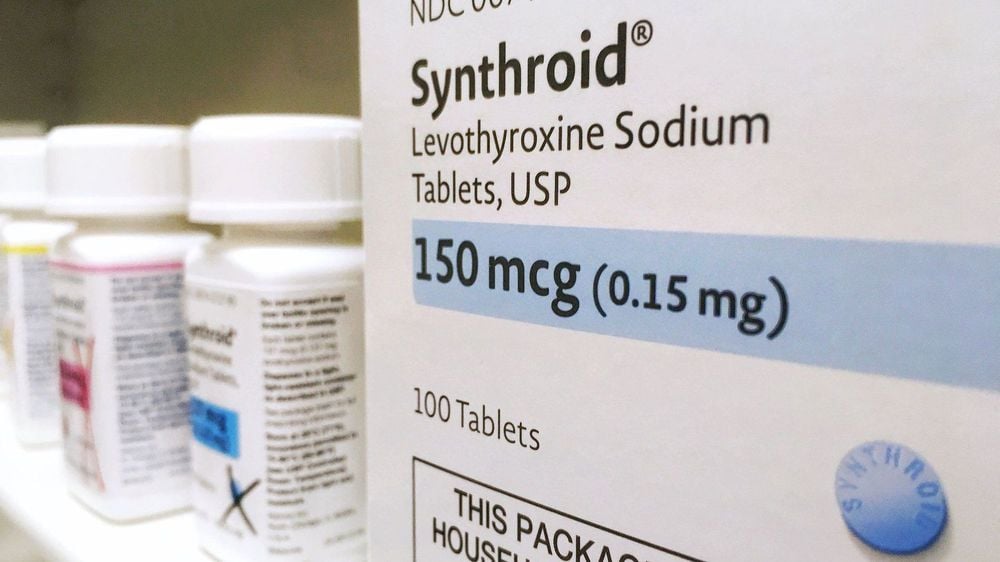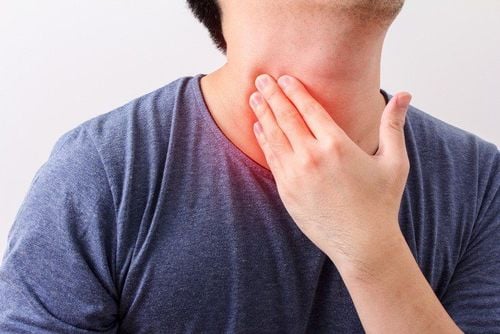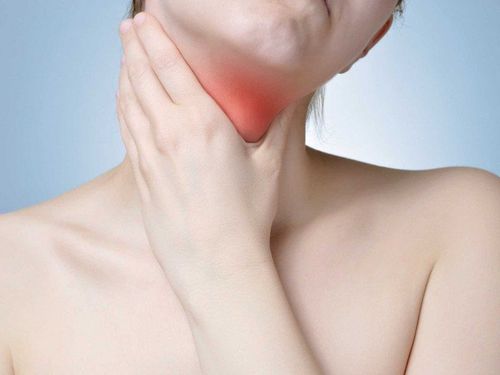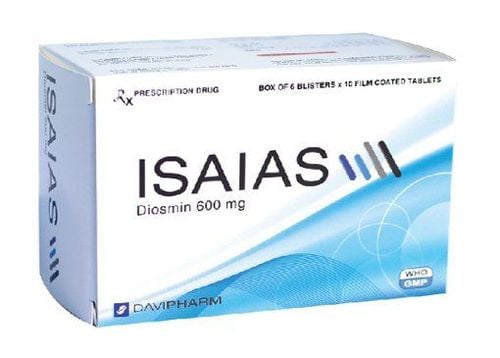This is an automatically translated article.
Article by Master, Doctor Bui Minh Duc - Department of General Internal Medicine - Vinmec Times City International Hospital
Muscle pain and weakness may occur in patients with an underactive thyroid (hypothyroidism) or an overactive thyroid (hyperthyroidism). In general, the muscle problems associated with thyroid conditions are usually mild and lessen with prompt treatment. In rare cases, myopathy associated with thyroid disease can be severe and affect body function.
Understanding the muscle symptoms related to thyroid diseases will make it easier for you to recognize when you encounter them.
1. Myopathy related to thyroid diseases
Myopathy that can be seen in hypothyroidism includes:
Weakness of the muscles near the middle of the body (thighs, shoulders); Cramp; Increased creatinine; opportunistic hypertrophy (Hoffman syndrome); Rarely, there is breakdown of muscle tissue (rhabdomyolysis). Myopathies that can be seen in hyperthyroidism include:
Muscle weakness; Effects on muscles involved in swallowing and breathing (rare); Cramps (uncommon); Creatinine levels tend to be normal.
2. Muscle weakness in patients with hypothyroidism
2.1 Warning Symptoms Although pain and weakness associated with thyroid disease can be systemic, it is most common in the proximal extremities, such as the thighs or shoulders. This condition makes it difficult for patients to climb stairs or comb their hair.
In addition to muscle symptoms, people with hypothyroidism may have elevated creatinine levels, as determined by blood tests. Creatinine kinase is an enzyme that is increased during muscle injury. However, creatinine kinase levels are not necessarily related to the severity of myalgia in patients with hypothyroidism.
Rarely, hypothyroidism can cause more serious muscle symptoms such as: Hoffman syndrome, diffuse muscle hypertrophy (enlarged muscles) leading to muscle stiffness, weakness, and pain.
Rhabdomyolysis (muscle breaks down rapidly) is another rare muscle manifestation of hypothyroidism. Rhabdomyolysis is often triggered when a person engages in vigorous exercise or takes a statin (a type of lipid-lowering drug).
2.2 Causes of muscle weakness in patients with hypothyroidism Currently, the exact cause of muscle weakness due to hypothyroidism is still unclear. Some experts speculate that thyroxine (T4) deficiency in hypothyroidism leads to abnormal oxidative metabolism, ultimately causing muscle injury and impaired muscle function.
2.3 Diagnosing muscle weakness in a person with hypothyroidism To make a diagnosis, the doctor will ask about the patient's symptoms and do a physical exam. Blood tests will be done to measure creatinine kinase.
In addition, your doctor may also recommend other tests, such as electromyography (a test that uses electrodes to detect and record electrical signals in a person's muscles and nerve cells when they're active and at rest) or a muscle biopsy to rule out other conditions.
2.4 Treat muscle weakness in people with hypothyroidism Treating muscle weakness in people with hypothyroidism with the thyroid hormone replacement drug Synthroid (levothyroxine) can often improve muscle symptoms such as cramps and stiffness. Improvement can take several weeks, and muscle weakness often takes several months to stabilize.

3. Myopathy seen in patients with hyperthyroidism
Muscle weakness is a characteristic symptom in people with hyperthyroidism. Although muscle cramps and soreness can occur, they are not as common as in myopathy associated with hypothyroidism.3.1 Symptoms With muscle weakness due to hyperthyroidism, the person may have difficulty climbing stairs, getting up from a chair, grasping/grabbing objects, or reaching overhead. Rarely, myopathy due to hyperthyroidism can affect the muscles that control swallowing and breathing. With hyperthyroidism, the level of creatinine kinase in the blood is generally normal, despite the fact that there is damage. muscle injury. As in hypothyroid myopathy, elevation of creatinine kinase does not correlate with the severity of muscle symptoms in the patient.
3.2 Etiology Like hypothyroidism, the mechanism underlying myopathy in hyperthyroidism is unclear. It is likely that elevated levels of thyroid hormone in the body are the direct cause. More specifically, this high level of thyroid hormone can lead to increased muscle protein breakdown and muscle energy use.
3.3 Diagnosis For myopathy in hyperthyroidism, the doctor will do a physical exam and ask the patient questions related to the muscle symptoms experienced. The doctor may also order blood tests and recommend electromyography.

3.4 Treatment If the hyperthyroidism is completely treated, the myopathy will also be cured. However, it can take up to several months to recover, even if the thyroid gland returns to normal.
Coping strategies to relieve muscle pain from thyroid problems may be helpful in the meantime. For example, massage, warm bath and gentle exercise. Magnesium supplements can also help muscle cramps. However, it is important for patients to see a doctor when they notice that their muscle pain or weakness becomes severe.
Currently, Vinmec International General Hospital has a screening service, screening for thyroid diseases to help customers detect early and treat effectively. When examining and screening for thyroid disease, customers will receive:
Examination and consultation with an Endocrinologist. Thyroid ultrasound. Screening tests for thyroid diseases: FT3, FT4, TSH, Anti – TPO, Anti TG. Return the results and consult with the doctor.
Please dial HOTLINE for more information or register for an appointment HERE. Download MyVinmec app to make appointments faster and to manage your bookings easily.
References: Muscle Pain and Weakness in Thyroid Disease. By Mary Shomon Medically reviewed by Danielle Weiss, MD. On September 06, 2020)













